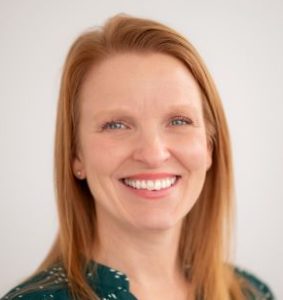
DENVER — Failure was a buzzword of sorts at the 2022 LeadingAge Convention and Expo here this week.
But like the Rockies looming beyond the hotel windows, the challenges and missteps of the last few years were painted as an obstacle to be crested on the way to someplace new.
For a provider in the right mindframe — having resisted burnout amid years of what Leading CEO and President Katie Smith Sloan called “pernicious barriers” — this could be the best time to transform.
These were messages underscored by two keynote speakers this week. On Tuesday, Stanford University’s Jamil Zaki gave a speech on “Embracing Failure,” an address heavy on using empathy to avoid burnout and build resiliency.
Monday’s first session was a bit more nail-on-the-head when it comes to rising from the ashes. Retired American women’s soccer standout Abby Wambach, author of “WOLFPACK: How to Come Together, Unleash Our Power, and Change the Game,” encouraged attendees to embrace past mistakes or less-than-desirable outcomes.
“Failure isn’t something to avoid,” she said. “It’s something to be fueled by. It does take mental work. It is really hard when you fail. Can you work yourself into becoming the kind of person that sees failure as an opportunity?”
It was a lesson Wambach said she learned as a 16-year-old phenom watching how failure in an international match motivated the US National Team, whose training facility she was using.
Though Wambach spoke largely of being shaped by challenges and building a team, her words also seemed to implore aging services providers to view themselves in a new light. Not as victims or losers in the pandemic storyline, but as survivors who now have a chance to emerge stronger and united.
At Tuesday’s general session, Sloan offered much of the same. Many providers, she acknowledged, are weary of media depictions that highlight weaknesses in the healthcare system and paint all long-term care providers with broad, and broadly negative, strokes. But now is the time to stare those challenges down, to accept the call to confront them, she stressed.
“This is not a time to be humble,” Sloan told her members. “Now’s the time to stand up for who we are and what we do for older Americans and their families, and for everyone who will grow older. Now is our time to build momentum.”
Like a muscle that’s suffered miniscule tears after a crushing workout, providers might now be able to repair and regenerate, to spring forth from the shortcomings that were thrust upon them by pandemic conditions.
But that will only happen if providers face the idea of failure head on and begin to rethink how they provide care and talk about that care. And approach their work with bold determination.
“These challenges also strengthen our resolve and make us see so much more clearly what it takes to provide this support and care we know every American deserves,” Sloan said. “We know how to lead with honor.”
As Wambach noted, true leaders know when to demand the ball, and they know what to do when they get it.
Fearing failure is not a reason to hesitate.
And so with that, I’ll mix metaphors with the best of them and wish providers speedy dribbling on the way over the mountain.
Kimberly Marselas is senior editor of McKnight’s Long-Term Care News.
Opinions expressed in McKnight’s Long-Term Care News are not necessarily those of McKnight’s.




